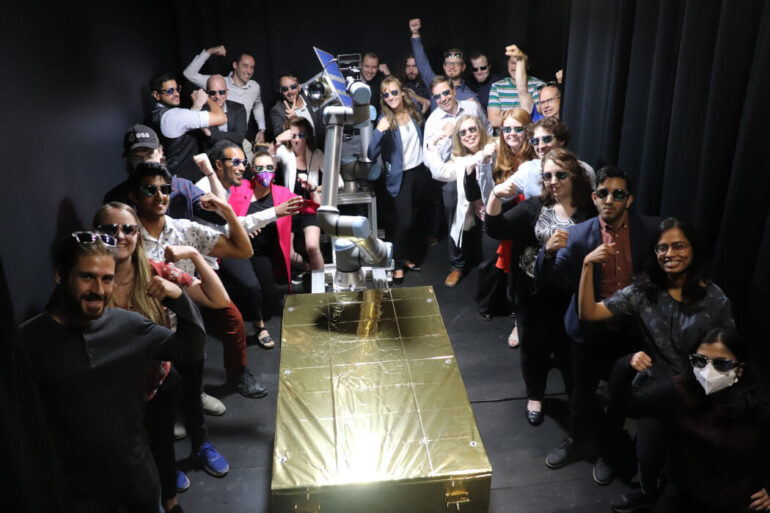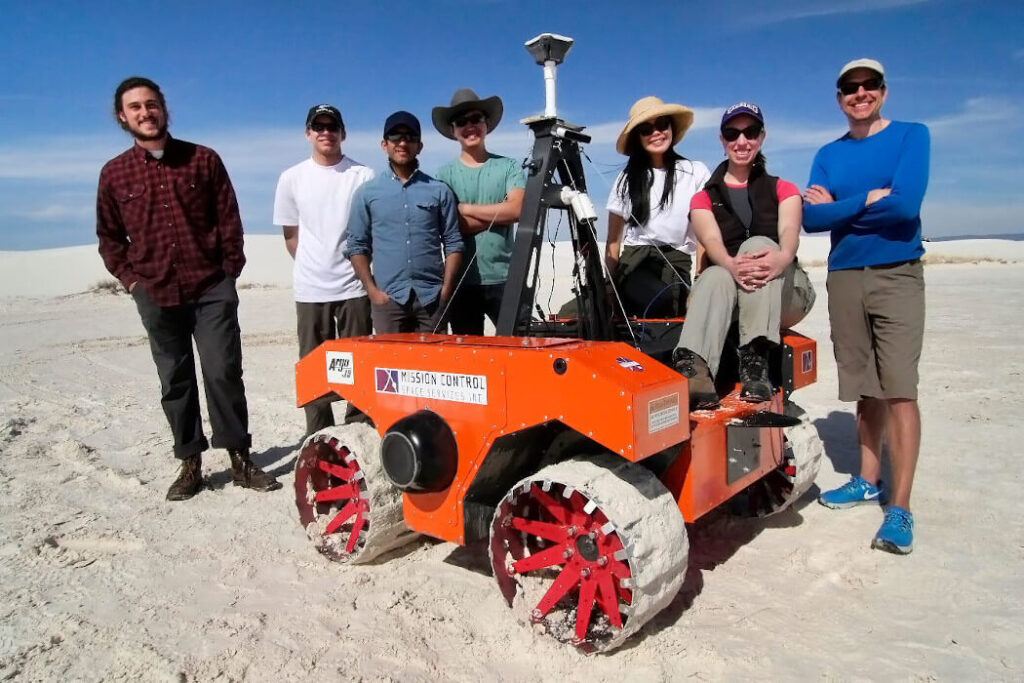Ottawa-based software startup Mission Control wants to make it easier for other players to explore scientific and commercial opportunities on the Earth, Moon, Mars, and beyond.
Mission Control has completed the initial close of an equity seed round led by Toronto’s GreenSky Ventures and supported by undisclosed angels. The startup, which has closed $2.4 million CAD of its $3.25 million target, hopes to secure the remainder in October.
“They are one of the few companies that have had their core software platform validated through multiple successful space missions.”
After spending years developing its tech, working with government and private organizations ranging from the Canadian Space Agency (CSA), to the European Space Agency, Canada’s Department of National Defence, NASA, and MDA, Mission Control has begun bringing its core software platform to market, and Mission Control founder and CEO Ewan Reid—who has spent his career working in space—believes the timing couldn’t be better.
As international space activity and investment picks up, Reid sees room for Mission Control to serve as an enabler for a wide range of players looking to deploy robotics and artificial intelligence (AI) in space over the coming years.
“We’re seeing an emerging boom in the commercialization of all sorts of new space activities—space exploration, on-orbit satellite servicing, in-space manufacturing, orbital debris removal, asteroid mining, tourism—it goes on and on and on,” Reid told BetaKit in an interview. “All of these areas will be enabled by robotics and AI, and for that, they need modern tech stacks, they need modern software platforms.”
Mission Control aims to provide just that. Launched in 2015, Mission Control’s products include its Spacefarer platform, which streamlines operations of space-based robotics and advanced payloads, and its AI platform, which the company has tested on missions but hasn’t yet begun licensing.
This latest capital brings Mission Control’s total funding to over $10.5 million, which includes less than $1 million in pre-seed funding in early 2022 from undisclosed angels and the Ontario Centre of Innovation. Reid noted that much of this $10.5 million total consists of grants from various government sources, including the CSA and the National Research Council of Canada, to develop, test, and deploy its tech.
During Mission Control’s early days, the startup signed a contract with the CSA to develop prototype AI system for a Mars Rover to help navigate it more safely. But when it came time to test that solution, Mission Control couldn’t find an off-the-shelf solution to operate that robot “in a space-like way,” so they built their own protocol and platform. The company soon realized that this software could enable others to do the same, and adjusted its focus accordingly.
It can take a long time—and often a lot of money—to bring space tech to market. As Reid noted, companies cannot sell tech to customers until they have proven that it works in space. With the help of the Canadian government, Mission Control has now validated that solution on real space missions. This was part of what attracted GreenSky.
“Mission Control’s historic progress is very impressive: they are one of the few companies that have had their core software platform validated through multiple successful space missions,” GreenSky managing partner Michael List told BetaKit.
For his part, Reid said Mission Control wanted an investor with a proven track record of supporting deep tech companies selling SaaS products and scaling successfully. He noted that GreenSky did “very deep diligence” before committing, which he said gives him confidence that the VC firm will support Mission Control for the long haul.
In the past, Reid noted that space missions would often be developed from scratch. Now, underlying tech stacks are being built by companies like Mission Control that can be deployed across various missions and a variety of use cases.
Over the past year, Mission Control has transitioned to being able to license Spacefarer and deploy it in a repeatable and scalable sales model, and the startup has begun licensing the platform to a handful of customers.
Reid sees an opportunity for Spacefarer in lunar exploration. “Space agencies and private companies around the world are really racing back to the Moon,” he added, pointing in part to recent announcements and activity by India, China, Russia, the US, and Canada.
Beyond the Moon, Reid sees room for Mission Control to deploy its software in other emerging markets, from on-orbit manufacturing to satellite servicing and debris removal.
RELATED: Wyvern raises $9.45 million CAD in seed-plus round
From an AI standpoint, Reid singled out Earth observation as a big application. From telecommunications infrastructure, to climate change, national security, wildfires, and illegal fishing monitoring, space often serves as an important means of both facilitating and measuring activity on Earth.
List anticipates that decreasing costs per kilogram to escape the Earth’s gravity well, and the emergence of applications enabled by robotics and autonomous systems to play in Mission Control’s favour. “As low earth orbit becomes increasingly crowded with satellites and other debris, the need for Mission Control’s solution, a market leader, is increasing,” he added.
This timing could prove beneficial for Mission Control. Referencing the billions of dollars committed by Canada in recent years towards developing Canadian space tech and continuing Canada’s participation in international space initiatives, as well as Canada’s participation in NASA’s upcoming Moon mission, Reid noted that there has been “a rejuvenation” of interest in space investment in Canada.
“With Canadian astronauts going to the Moon and with Canadian government supporting Canadian industry, Canada is poised to be a world leader when it comes to space technology. We have been in the past, we lost that position through years of stagnant investment and complacency, and we’re starting to see that reinvigoration, which is really exciting.”
Feature image courtesy Mission Control.



